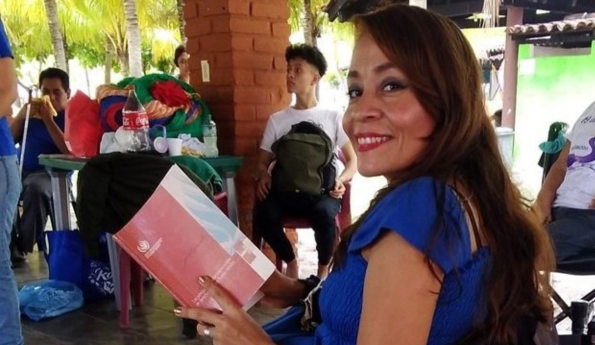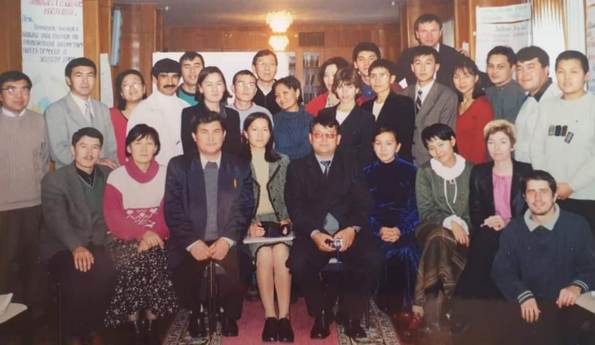By Jennifer Brookland
Climb into one of the canopied boats waiting on the shore of Ethiopia’s Lake Ziway and be transported back in time, to an ancient monastery where monks say the sacred Ark of the Covenant once rested.
Or try a hike alongside wild baboons, butterflies and birds through pristine Lepis forest, a crashing 70-foot waterfall the trek’s reward.
Most visitors to Ethiopia never explore the Central and Southern Rift Valleys, but new tourism attractions—developed with Counterpart International support and officially opened March 21—have the potential to change that.
They could also change the lives of the communities who helped develop them.
The business growth and economic benefits that accompany the six new ecotourism sites are set to bring additional income to 40,000 community members, while preserving the natural environment.
The sites were developed with funding from the U.S. Agency for International Development’s Ethiopian Sustainable Tourism Alliance (ESTA) project, which Counterpart International implements.
“We are thrilled to partner with Ethiopia in attracting responsible tourists to its new destinations,” says Counterpart’s Senior Vice President of Programs Tim Ogborn. “At Lepis and Ziway, travelers can also make a positive impact in the lives of local community members.”
Communities, government partners, and the private sector all came together to create sustainable, market-driven attractions that allow residents to make a profit from conserving environmental resources and local culture.
The innovative network of Community Conservation Areas, which includes Lake Ziway and Lepis Forest, is the first of its kind in Ethiopia.
A group of 80 visitors got a taste of the new offerings at a two-day event held on the shore of Lake Ziway—just four hours from the capital of Addis Ababa.
They perused local artisans’ wares in a local tukul (conical mud hut) and took boat rides to Tulo Gudo Island, where legend says the Ark of the Covenant was held for 700 years.
Other attractions and activities include bird-watching, hiking and horseback riding. A new community-managed restaurant offers visitors the freshly-caught grilled fish.
“The place I saw is a good initiative that could really empower the community,” says Negash Teklu, Executive Director of an Ethiopian NGO consortium and a guest at the opening event.
Counterpart was part of a coalition that implemented the five-year, $7 million dollar initiative to promote biodiversity conservation through sustainable tourism and other alternative livelihoods.
But close partnership with local communities was the key to its success.
“For tourism to be successful and sustainable, both the land and communities in the destination must be healthy and productive,” says USAID’s Ethiopia Agricultural Officer Cullen Hughes. “The project’s holistic development approach has created the ideal environment for tourism growth and provides visitors with an authentic experience of Ethiopia.”
That hand-in-hand approach led to the creation of 34 associations to support sustainable livelihood generation and biodiversity conservation in the Central and Southern Rift Valleys.
By October, all ESTA activities will be officially handed over to them.
“In many ways ESTA has thought of sustainability from the beginning of the project, to ensure there are market linkages with the private sector to ensure a steady stream of tourists and buyers for handcrafts,” says Brian Chang, Counterpart’s senior technical officer in Ethiopia.
Chang was proud to see these associations step up and stand on their own during the opening event, which marks the beginning of this important handover.
“They have known for some time that tourists are coming,” he says.
And come they will. If market analysis proves correct, tourism to some of the sites could jump 60 percent.




